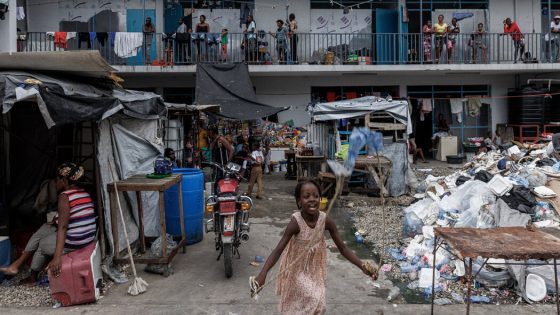On January 25, 2025, in Port-au-Prince, Haiti, 10-year-old Faida Pierre was found alone on her school’s rooftop, barefoot and crying, as gang violence erupted in the surrounding area. This incident, which occurred a year ago, forced Faida and approximately 300,000 other children in Haiti to abandon their education due to the escalating threat of armed groups.
- Faida Pierre's traumatic school experience
- Gang violence disrupts children's education
- 300,000 Haitian children stopped attending school
- Children face homelessness and hunger
- Armed groups target displaced children for recruitment
- Panic ensued during the gang attack
The situation for children in Haiti has deteriorated significantly due to rampant gang violence. Many students, like Faida, are unable to attend school because of the fear of attacks. The violence has not only disrupted education but has also left many children homeless and vulnerable to recruitment by gangs.
Key statistics highlight the severity of the crisis:
- Approximately 300,000 children have stopped attending school.
- Haiti has seen a dramatic increase in gang-related violence over the past year.
- Many children are now living in precarious conditions, lacking basic necessities.
As armed groups continue to exert control over neighborhoods, the educational prospects for Haitian children remain bleak. Schools have become unsafe environments, prompting parents to keep their children at home. The psychological impact of such violence is profound, leaving lasting scars on the youth.
In conclusion, the plight of children like Faida Pierre underscores a larger humanitarian crisis in Haiti. With education disrupted and safety compromised, the future of many young Haitians hangs in the balance.
The ongoing gang violence in Haiti has resulted in significant educational disruptions for children, highlighting the urgent need for international attention and support to restore safety and access to education.

































